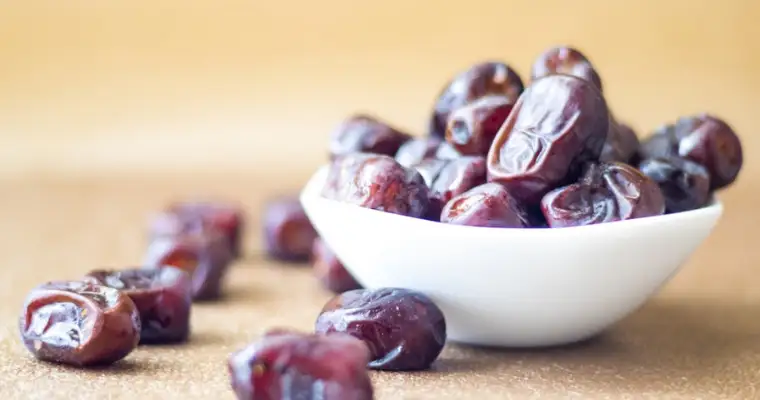What is Natural Sweeteners?

What is Natural Sweeteners while following a Whole Food Plant-Based diet?
Also, finding natural sweeteners to replace refined sugars can be a game-changer. Not only do they offer a touch of sweetness, but they also bring unique flavors and potential health benefits.
In this blog post, we will dive into the world of natural sweeteners and explore their role in a Whole Food Plant-Based diet.
From dates to fruit-derived sugars, we will uncover the delightful sweetness and nutritional benefits that these natural alternatives offer.
We’ll explore their characteristics, culinary uses, and health benefits while providing insights on incorporating them responsibly into your plant-based lifestyle.
What is Natural Sweeteners?
Natural sweeteners are sweetening agents derived from plants, fruits, or tree sap, making them a healthier alternative to refined sugars.
Unlike processed sweeteners, natural sweeteners undergo minimal or no refinement, preserving essential nutrients and health benefits.
Moreover, cherished for their unique flavors, providing a wholesome, delectable touch to various dishes.
Balancing Sweetness and Health
Incorporating natural sweeteners into a Whole Food Plant-Based diet requires mindful balance. While natural sweeteners offer health benefits like nutrients and antioxidants, it’s crucial to remember that they are still calorie sources.
Portion control and understanding individual health needs are key to enjoying these sweeteners while staying on track with your plant-based goals.
To fully embrace the delights of natural sweeteners, try experimenting with recipes that feature dates, fruit-derived sugars, coconut sugar, maple syrup, or agave nectar. From date-sweetened muffins to maple-glazed roasted vegetables, the possibilities are endless.
As you embark on this culinary journey, remember to explore different flavor combinations and use natural sweeteners responsibly to create wholesome and satisfying meals.
The Pros and Cons of Natural Sweeteners:
Specifically, as with any dietary choice natural sweeteners have their benefits and considerations.
Pros include nutrient density, antioxidant content, and natural energy release. However, they are calorie-dense and can impact blood sugar levels. Mindful consumption is essential to enjoy their sweetness without overindulging.
Positive Health and Negative Health Considerations:
When incorporated thoughtfully, natural sweeteners contribute to better health. They may reduce inflammation, support digestion through fiber intake, and enhance nutrient absorption.
Embracing natural sweeteners aligns with a whole food plant-based lifestyle, promoting overall well-being.
Despite their health benefits, natural sweeteners are not entirely without concerns.
Dental health should be a priority, as they can contribute to tooth decay if not consumed responsibly. Additionally, individuals with diabetes or insulin resistance should monitor their intake to manage blood sugar levels effectively.
Balancing Sweetness and Whole Foods:
In a Whole Food Plant-Based diet, it is crucial to strike a balance between enjoying natural sweeteners and prioritizing nutrient-dense foods.
Dates, fruit-derived sugars, and other natural sweeteners can be part of a well-rounded diet when consumed mindfully and in moderation.
What is Natural Sweeteners Our Favorites
Fruits
- Bananas: *Dried bananas can be ground into a powder or processed into banana chips, which can then be further ground into a sweetener. This banana sweetener adds a tropical sweetness to baked goods, smoothies, and desserts.
- Dates: *A superfood packed with nutrients, serve as a natural sweetener in two versatile forms: date sugar and date syrup. Date sugar is made by drying and finely grinding whole dates into a granulated form, retaining the fruit’s fiber and mineral.
- Apples: Dried apple slices can be blended or ground into a powder, creating a flavorful apple sweetener. This can be used as a natural alternative in recipes that call for sugar, providing a touch of apple flavor.
- Pineapples: Drying pineapple slices or using freeze-dried pineapple powder can yield a tangy and sweet pineapple sweetener. It can be used in various recipes, including marinades, glazes, or even sprinkled on top of desserts.
- Mangos: Dried mango slices can be ground into a powder or used as is to add a tropical sweetness to dishes. Mango sweetener is especially delightful in smoothies, sauces, and baked goods.
- Apricots: Dried apricots can be processed into a sweetener by grinding them into a powder or creating a paste. This sweetener can be used in jams, spreads, or as a natural sweetening agent in baked goods.
- Berries: Certain berries, like strawberries, raspberries, and blueberries, can be dried and powdered to create flavorful berry sweeteners. These can be used in a variety of recipes, such as sauces, dressings, or mixed into yogurt or oatmeal.
- Prunes: Dried plums, also known as prunes, can be pureed into a paste and used as a natural sweetener in baked goods, energy bars, or as a spread on toast.
Syrups and Nectars
- Coconut Sugar: Derived from the sap of coconut palm trees, coconut sugar is a minimally processed sweetener that has gained popularity for its low glycemic index and unique taste. With its rich caramel flavor, coconut sugar can be used as a direct substitute for refined sugar in most recipes.
- Maple syrup: A treasured natural sweetener, is obtained by collecting and concentrating the sap of maple trees. Its complex and robust flavor profile, with hints of caramel and woodsy undertones, sets it apart from other sweeteners.
- Agave Nectar: Extracted from the agave plant, agave nectar is sweeter than table sugar and has a lower glycemic index. Its mild taste makes it an excellent option for sweetening beverages, desserts, and dressings.
- Blackstrap molasses A dark, viscous byproduct of refining sugarcane into sugar. It contains significantly fewer sugars than its earlier extraction, making it a less concentrated sweetener. Despite its lower sweetness, blackstrap molasses boasts a myriad of health benefits and a deeply rich flavor profile.
- Plain molasses Sometimes referred to as light or dark molasses, is a step between sugarcane juice and blackstrap molasses in the sugar refining process. It retains a balanced level of sweetness and flavor, making it a versatile option in the world of natural sweeteners.
- Raw Honey*: Raw honey is a natural sweetener produced by bees from the nectar of flowers. While it is not considered vegan, some individuals following a Whole Food Plant-Based diet may choose to include it in their sweetening options.
Honey Use Consideration
*If you decide to include raw honey in your plant-based diet, make an effort to find ethically sourced honey. Look for local Organic beekeepers who prioritize the well-being of bees and practice sustainable beekeeping methods.
These beekeepers often prioritize the health of the hive, promote biodiversity, and refrain from using harmful practices such as wing clipping or extraction methods that harm bees.
Additional Considerations:
When using dried fruits as sweeteners, it’s important to note that they may contribute a denser texture and stronger flavor compared to refined sugar. It’s best to experiment with quantities to achieve the desired level of sweetness in your recipes.
Additionally, some fruits can be used in their wet form to create natural sweeteners. For example, coconut nectar or coconut sugar is derived from the sap of coconut blossoms, providing a rich and caramel-like sweetener.
Similarly, maple syrup is obtained from the sap of maple trees and can be used as a liquid sweetener.
Exploring the use of different fruits, whether dried or in their wet form, allows for a variety of natural sweeteners that bring unique flavors and nutritional benefits to your plant-based creations.
Closing:
In conclusion, natural sweeteners are a treasure trove of delightful flavors and health benefits, perfectly suited for a Whole Food Plant-Based lifestyle. Dates, coconut sugar, maple syrup, and agave nectar offer versatile and delicious alternatives to refined sugars.
By understanding their unique properties and incorporating them mindfully into your diet, you can revel in the pleasures of sweetness while nurturing your well-being.
By incorporating these natural sweeteners responsibly and in moderation, you can savor the delightful flavors while supporting your plant-based lifestyle.
Remember to experiment, enjoy the unique tastes, and find the balance that aligns with your personal health goals and values. Embrace the abundance of natural sweeteners nature has to offer and let them enhance your plant-based culinary creations.
Have we answered the Question, What is natural sweeteners? Let us know in the comments below.
Be sure to sign up for your > Free 12 Tips Food Guide <
To your sweet success!
Cheers,
Plantaful Life Team
Disclaimer: The information shared in this blog post and on our website is for educational and informational purposes only. We are here to inspire and support you on your plant-based journey. However, always prioritize your health and consult with your trusted healthcare provider for personalized advice. By using our website, you acknowledge and agree that you have read and understood this medical disclaimer, and you acknowledge the significance of seeking professional medical advice for your specific health needs.
References:
Cleveland Clinic Health Essentials
Top 6 Health Benefits of Dates – Cleveland Clinic
